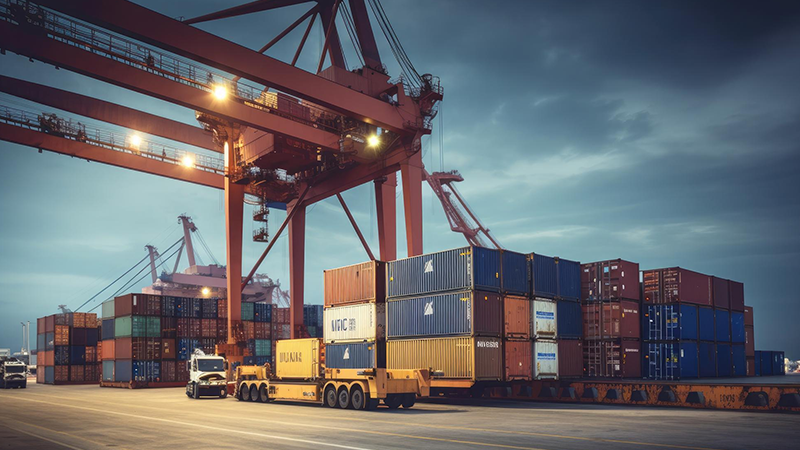The expansion of digital commerce in recent years has brought new debates and challenges regarding the taxation of these operations, especially with regard to the tax liability of digital platforms.
In a pre-Tax Reform scenario, some states – such as Rio de Janeiro, Bahia, Ceará and Mato Grosso – instituted state rules seeking access to transaction information, with the aim of assigning digital platforms tax liability for the payment of ICMS not paid by the actual seller, given the participation of these players in the operations.
However, given the situation in the Brazilian legal system prior to Constitutional Amendment No. 132/2023, there was some caution in holding intermediaries responsible for not paying the state tax. The main reason for this is that, under the terms of Article 155 of the Federal Constitution of 1988, ICMS is levied on transactions involving the movement of goods, i.e. commercial transactions[1].
Considering that the activity of marketplaces consists of intermediating a purchase and sale operation between the seller of the goods and the end consumer, these platforms do not acquire ownership of the good in order to transfer it to a third party, which is why they do not carry out a commercial operation.
This scenario will have new chapters with the tax reform, especially with EC No. 132/2023 and the eventual enactment of PLP No. 68/2024.
Initially, §1 of article 23 of the PLP defined digital platforms as those that act as intermediaries between suppliers and purchasers in transactions carried out in a non-face-to-face manner or by electronic means, and that control one or more elements of the negotiation of the transaction such as (i) collection, (ii) the payment and (iii) the definition of the terms and conditions or (iv) delivery.
The Bill also defines, in §2 of article 23, what digital platforms are not. These are cases in which there is only the provision of internet access, payment processing, advertising, or even the search for or comparison of suppliers, as long as there is no charge for the service based on the sales made.
With this in mind, the new amendments now provide that IBS and CBS tax liability may be attributed to any person who incurs in the realization, execution or payment of the transaction.
By dealing exclusively with the IBS, the Federal Government has sought to avoid new discussions between “goods” and “services” for the purposes of the ICMS x ISS levy, instituting a single tax on consumption, as occurs in the European system through VAT.
In the European model, Directive EU 2017/2455[2] established the tax liability of digital platforms that intermediated between sellers located outside the European Union and consumers residing in the economic bloc.
The aim of the measure was to ensure that the tax was paid on these transactions, so that liability would only be waived if it was proven cumulatively: (i) the absence of participation in the terms and conditions of the sale operation; (ii) the absence of involvement in the payment process; and (iii) lack of involvement in the delivery process.
Turning the focus to Brazil, article 23 of PLP 68/2024 provides two hypotheses for the tax liability of digital platforms operating in Brazil:
- The first of these imposes substitute liability on platforms if the supplier is resident or domiciled abroad;
- In the second case, the platform will be jointly and severally liable with the supplier resident or domiciled in the country, if it has not registered with the IBS/CBS, or if it has not recorded the transaction in an electronic tax document.
With regard to the first point, the Legislative Branch sought, to a certain extent, to adhere to the European model of accountability established by EU Directive 2017/2455.
As for the second point, there is no doubt that it is much more effective (and even more advantageous) to inspect and demand tax from the big digital platforms than from the actual sellers of goods. However, it is necessary to take a close look at the factual conditions of the operation so that tax liability is not attributed to players who do not have access to the information needed to pay the tax obligation.
In short, although the tax reform regulation has taken a first step, the scenario involving digital platforms by the IBS/CBS could still be the subject of further developments. Mainly because there is some doubt as to whether these players have the taxpaying capacity to justify their being held liable for taxes.
PLP No. 68/2024 was recently submitted to the National Congress, which will certainly lead to new discussions in favor of simple and effective regulation of operations intermediated by digital platforms.
The Tax Law Department at Marins Bertoldi Advogados is closely monitoring developments in this area and is at your disposal to answer any questions you may have and delve deeper into each business reality.
[1] STF, ADC 49: “The hypothesis of incidence of the tax is the legal operation practiced by a merchant that results in the circulation of goods and the transfer of ownership to the final consumer.” (STF, ADC 49, Full Court, DJe 03/05/2021).
[2] Available at: https://eur-lex.europa.eu/legal-content/PT/TXT/?uri=CELEX%3A32017L2455
By Augusto Chimborski and Luiza França Pecis







